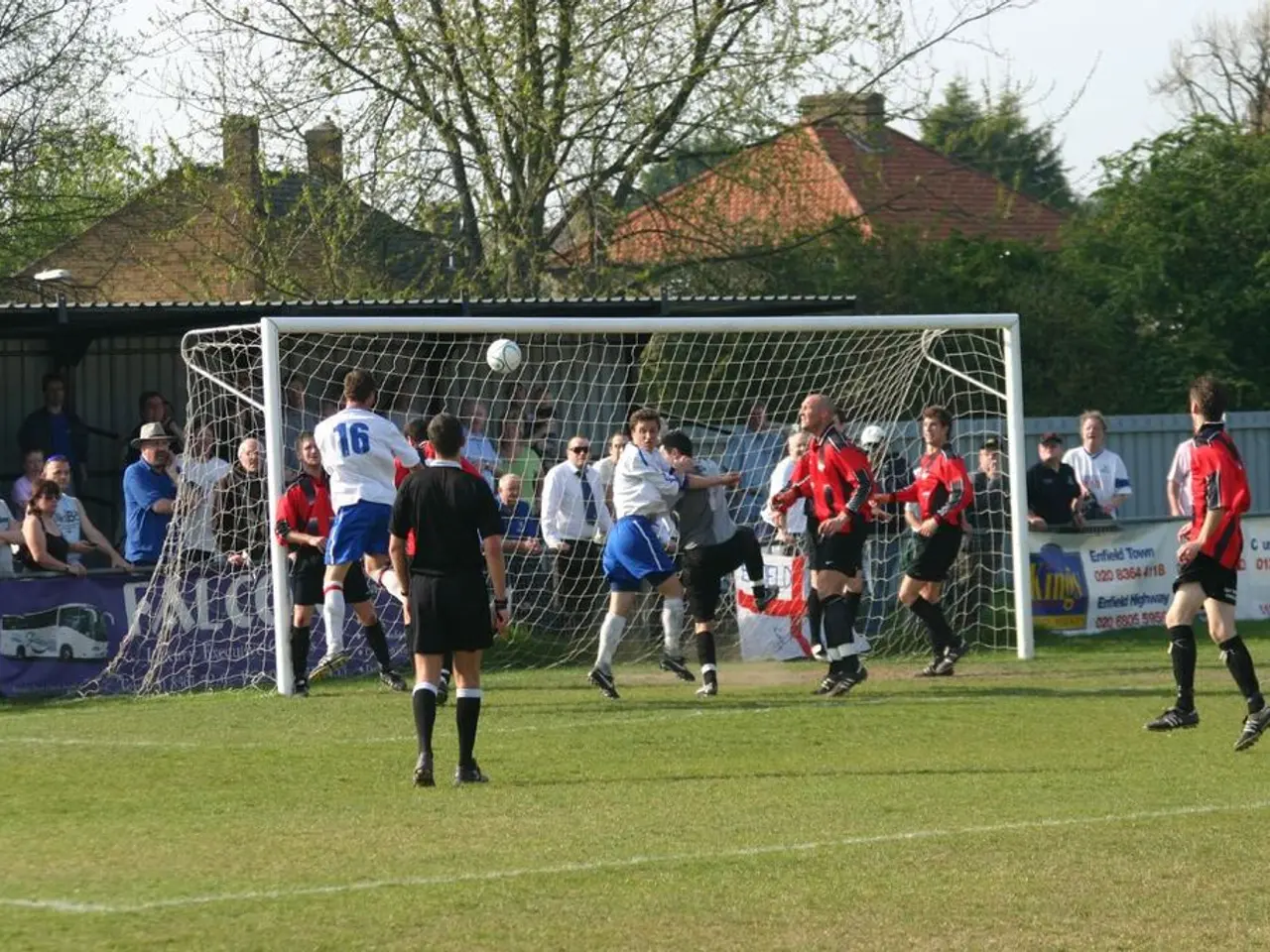Advocacy group calls for prohibition of marketing for mobile phone sports wagering ads
In the rapidly expanding sports betting market, a growing concern about problem gambling and addiction has prompted legislative proposals in the United States. These initiatives aim to regulate sports betting advertising, particularly push notifications, to enhance consumer protection.
At the federal level, the SAFE Bet Act proposes a significant overhaul of advertising regulations. The bill seeks to ban sports betting advertisements that include promotional offers, restrict the use of artificial intelligence to create personalized betting incentives, and limit the hours when such ads can be shown.
On the state level, New York and New Jersey are leading the charge. The Regulating Addictive Notifications Act in the New York State Senate proposes a ban on push notifications or text messages for the solicitation of sports wagers, similar to New Jersey's Assembly Bill A5207, which proposes a ban on internet-based sports betting advertisements, including those on mobile apps.
These initiatives are supported by the National Consumers League (NCL), which also urges the Federal Trade Commission to investigate push notification marketing for potential unfair or deceptive practices. According to a report by the NCL, 93% of smartphone notifications from three sports betting companies during a four-week period contained advertising material.
The report, based on a collection of over 100 notifications, reveals that at least 50% of notifications contained promotional offers, including bonuses, bonus bets, "no sweat" bets, and odds boosts. Furthermore, 62% of notifications contained language urging the user to place a bet, while an additional 28% advertised betting odds, and 15% marketed parlays, a risky type of bet with little chance of payout for the bettor.
Eden Iscil, NCL Senior Public Policy Manager, stated that the use of app notifications for advertisements is an invasive marketing practice that should not be normalized. The NCL advocates for a ban on sports betting advertising, particularly the use of push notifications for this purpose.
Existing state-level responsible gaming regulations often restrict advertising that targets minors or media with significant underage audiences and impose limits on wagers and time spent gambling. These frameworks also require operators to provide responsible gaming information and enforce self-exclusion options. The push to regulate push notifications and personalized marketing is part of a broader trend toward tighter advertising rules.
If enacted, these laws could change how operators market their services, emphasizing responsible gaming and consumer safeguards. For more insights, a blog post outlining how the FTC should consider these advertisements can be found at [specific URL]. The NCL's full report on sports betting companies' use of push notifications can be found at [specific URL].
- The SAFE Bet Act, proposed at the federal level, aims to restrict the use of sports betting advertisements that include promotional offers, such as bonuses and odds boosts, and limit their broadcasting hours, mirroring similar legislative initiatives in New York and New Jersey.
- In response to concerns over problem gambling and addictive notifications, the Regulating Addictive Notifications Act in New York State Senate and Assembly Bill A5207 in New Jersey propose bans on push notifications and internet-based sports betting advertisements, respectively, following the advocacy of the National Consumers League (NCL) for a comprehensive ban on such marketing practices.







